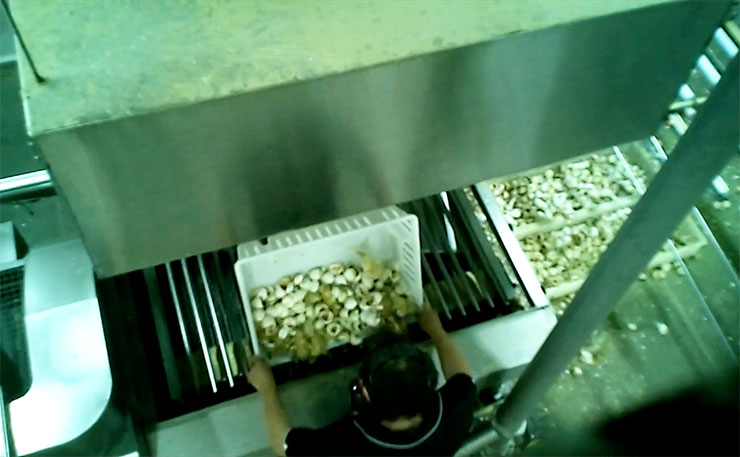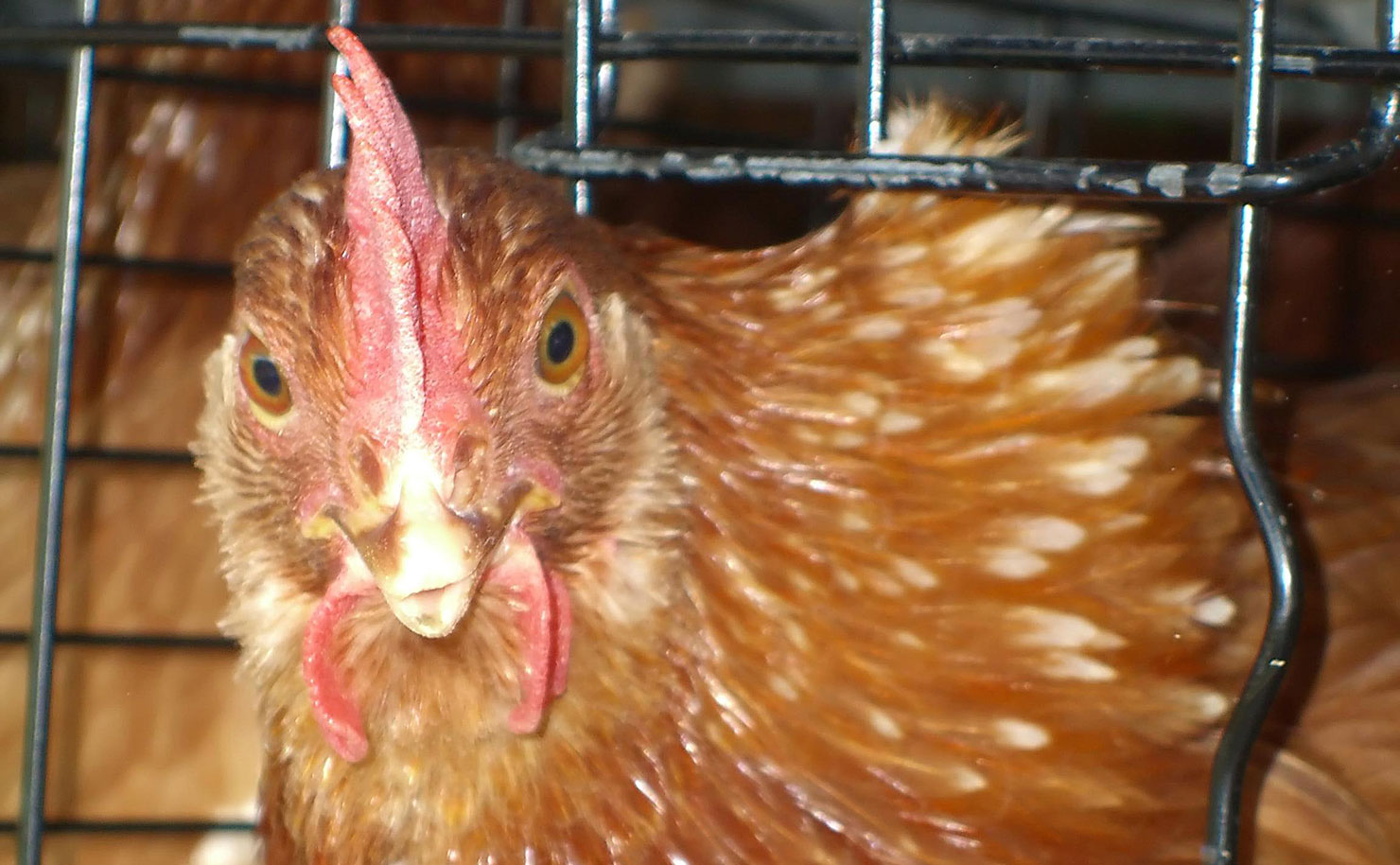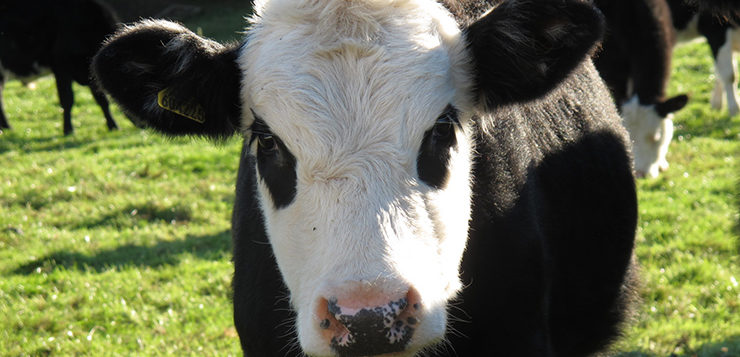One of the worst things to befall cattle, poultry and pig farmers has NOT been the use of the term ‘meat’ to describe lab-developed meat replacements, writes Geoff Russell.
Long-time Landline creator and reporter Kerry Lonergan took a swipe at meat replacement products earlier this year (Episode 21/2018). His outrage at companies appropriating terms like milk, meat, mince and sausages for things that don’t involve killing animals was palpable. His linguistic ignorance in including mince in this group is hardly worth a mention in light of his general confusion about what is essentially a pretty simple issue.
“If real meat is so terrible, why would you name an alternative after something you criticise?” he asked.
What’s to understand? Some people’s stunted concern for animals, the climate or the general environment is easily overwhelmed by a smell or taste they’ve grown up with. Other’s simply don’t give a damn; about anything. Give them something that tastes better and a name that tells them what the product will replace and they’ll probably eat it.
There are very few people who’ll choose meat because they actively want killing and cruelty, most are just ethically limp-wristed.

The makers of meat replacement products understand this and are simply trying to grab a slice of the market by making a more eco- and animal-friendly product look familiar to consumers locked into bad habits.
These products, after all, are aimed at meat eaters, not vegans.
Which may go some way to explaining the high sodium content of some of these products; the target of well-founded criticism by Lonergan.
The world’s supermarkets and recipe books are full of sauce recipes for things to add to meat to help it taste less like meat, so it’s no wonder producers feel that extra salt might appeal to their meat-eating target.
You may still think that using meat terminology in advertising is ethically dodgy. Compared to what? The meat industry is fond of appropriating the word ‘good’ from ethical discourse and calling their products things like a good source of protein. Clearly it is a bad source of protein or a cruel source of protein or an eco-destructive source of protein.
The strategy pales beside crippling chickens in broiler sheds and selling them to children with absolutely no images showing the suffering the birds go through before being stuffed into crates destined for shackling hooks and a very early death.
Promoting chicken, as Steggles do with terms like “Quality time” and images of family dining is about as dishonest as it gets; the chickens get zero quality time in their six or seven week lifespan.
And the way it farms animals isn’t the only thing the industry likes to deceive customers about.

Back in 2008, shortly after the World Cancer Research Report first affirmed (following a decade of research) that red and processed meat caused bowel cancer, I wrote to Professor Graham Giles of Cancer Council Australia.
What proportion of Australia’s bowel cancers were caused by red meat? His estimate of what is called the Population Attributable Fraction was 48 percent; meaning that around half of the 16,682 cases of bowel cancer in 2017 were due to red meat.
In their 2018 report, the WCRF still lists the evidence for red meat causing bowel cancer as “Strong” despite a decade of meat industry efforts to confuse the already complex story of cancer causality. But WCRF has downgraded the causality judgement a little to probable because of the confounding associated with research.
What does that mean? It means that people eating a lot of red meat tend to eat dismal diets anyway, making it hard to know if they had too much bad stuff (red meat) or too little good stuff (vegetables, beans, nuts, wholegrains and fruit). For processed meat, the causal evidence is still labelled as “convincing”. Are there cancer warning on bacon like there are on cigarettes? There bloody well should be.
The red meat industry has been misleading people about its products for decades. Who can forget the Sam Neill ‘Evolution’ ads, falsely claiming that meat made human brains expand a couple of million years ago. It was a deception so brazen it has to be called a lie.
Anybody could have googled a little to find that the geneticists were actively debating various genes and mutations (random events) that they thought might be likely candidates for the real cause of this change. It was a campaign targetted to those who’ve missed out on a couple of decades of genetic science; which is most people.
New Scientist ran a story earlier in June this year with the heading: “The gene that led to the human intelligence book has been found”. After a long search, it looks like they’ve honed in on the actual cause of our human brain expansion, and it had nothing to do with meat, or cooking or any of the other theories which are such fun to discuss while the excruciatingly complex details of the real science is being painstakingly worked through.
Consensus on such bold announcements typically takes time in science but the results so far look good. A small random mutation about 3-4 million years ago delayed the transformation of stem cells into brain cells allowing more divisions and ultimately the development of about three times more cells.
But it doesn’t take a genetics degree to notice that cats of all sizes have been eating meat for a very long time and still can’t play chess.
Meat advertising campaigns have come and gone, but they have all been marked by dishonesty and deceit. Hiding production methods and health problems is par for the course. But apart from being dishonest, they’ve also been astonishingly successful.
People seriously think you need to eat meat and the contradictions between that belief and the existence of a growing mass of vegans seems to totally pass them by. Meat replacement marketing campaigns are unashamedly using that success and aiming to chip off chunks of the meat market.
Meat apologists may like to look up from the bottom of their moral crevasse and pour out their crocodile tears while complaining about fair advertising. But it’s nice when what goes around comes around; it doesn’t happen often enough.
Donate To New Matilda
New Matilda is a small, independent media outlet. We survive through reader contributions, and never losing a lawsuit. If you got something from this article, giving something back helps us to continue speaking truth to power. Every little bit counts.




